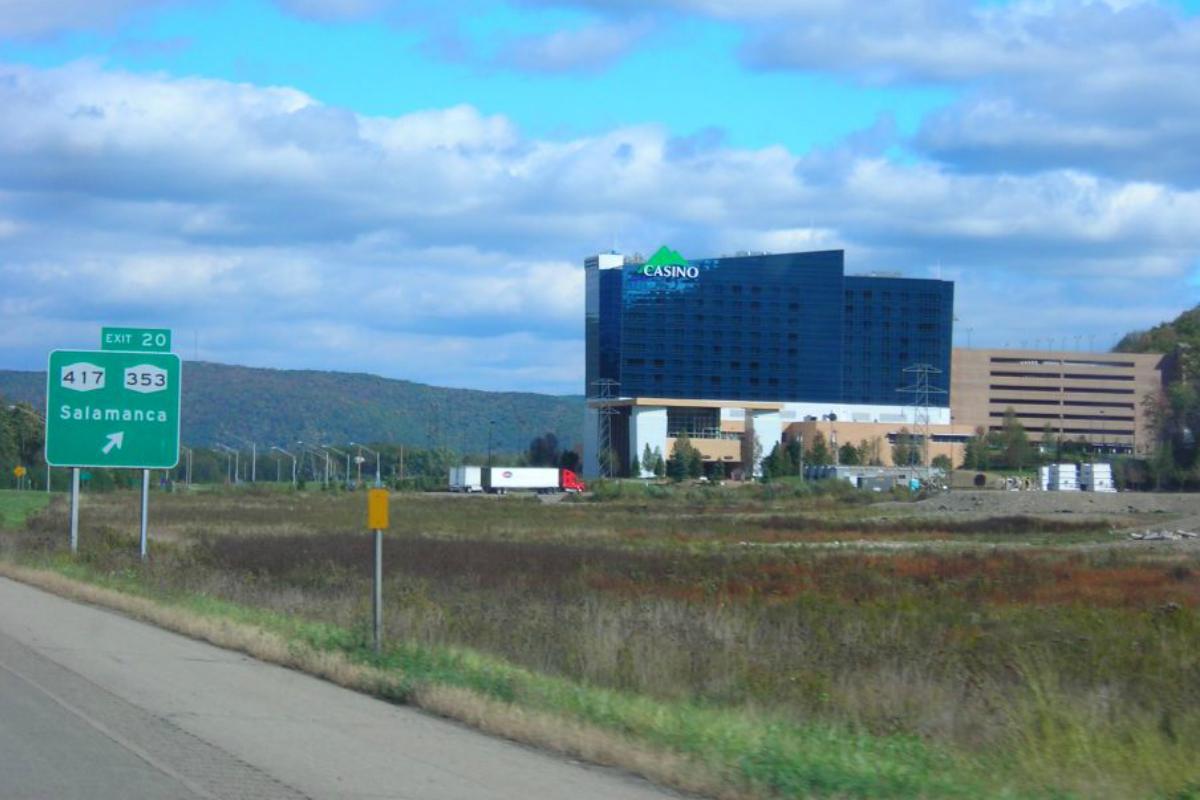Seneca Nation Casino Revenue Dispute Leads To Salamanca, NY Budget Woes
Posted on: September 24, 2019, 08:34h.
Last updated on: September 24, 2019, 10:21h.
New York State has sent the City of Salamanca $2.35 million to help fund the tiny town’s local budget amid the ongoing casino revenue sharing dispute with the Seneca Nation.

A check for $2,350,000 was received last Friday by city officials to assist the town through the rest of its 2019-20 budget year. The payment is a result of the Seneca Nation of Indians terminating its casino revenue payments more than two-and-a-half years ago.
Salamanca, with a population just under 6,000 people, assumes $4.7 million annually in revenue payments from the Seneca Allegany Resort & Casino. City Comptroller Kathy Sarver explained that the rest of the money would come by way of another state check unless the tribe and state officials in Albany settle their differences before the next scheduled payment is to be received in December.
If it is settled, then there won’t be any need to advance us any money because we’ll be getting the payments from the casino,” Sarver said. “It’s just an advance. If and when the casino compact issue is settled, we’ll have to pay the state back this money.”
Salamanca’s 2019-20 fiscal year runs through March 31, 2020. Along with its Salamanca resort, the Senecas own and operate casinos in Niagara Falls and Buffalo Creek, as well as smaller Class I and II bingo halls and card rooms on its sovereign territories in Allegany, Cattaraugus, and Oil Spring.
Tribal War
It was in March of 2017 that the tribe decided it no longer was legally required to share 25 percent of its slot machine winnings with the state and local governments. The Native American group argued when its gaming compact rolled over a year earlier, the agreement extended its rights to operate Class III gaming (slot machines and table games). But there was no provision saying the revenue sharing would continue.
An arbitration panel ruled otherwise in April, and ordered the tribe to pay $255 million in back payments. The Senecas are appealing the decision, and are holding more than a quarter of a billion dollars (and growing) in escrow.
Bumpy Roads
The dispute between the Seneca Nation and State of New York is getting very ugly. And depending on who you ask, lives are being put at risk.
A three-mile stretch of I-90 travels through the Seneca Nation’s Cattaraugus sovereign reservation. The road is in desperate need of repair, but Gov. Andrew Cuomo (D) is refusing to provide funding for the stretch during the ongoing tribal standoff.
New York paid the Senecas $75,000 in 1954 – about $715,000 today – to obtain an easement on the territory to build I-95. The tribe says the state wrongly acquired the rights after implementing tolls on the road but refusing to share any of the revenue with the Native American group.
The highway in question is so bad that the speed limit has been reduced to 45 mph. On either side of the stretch, the maximum posted speed is 65 mph.
“I don’t want to give them a reason to say New York breached the agreement by coming onto I-90 when they had no right to come onto I-90,” Cuomo said last month. “That could actually jeopardize our position on the revenues.”
No comments yet